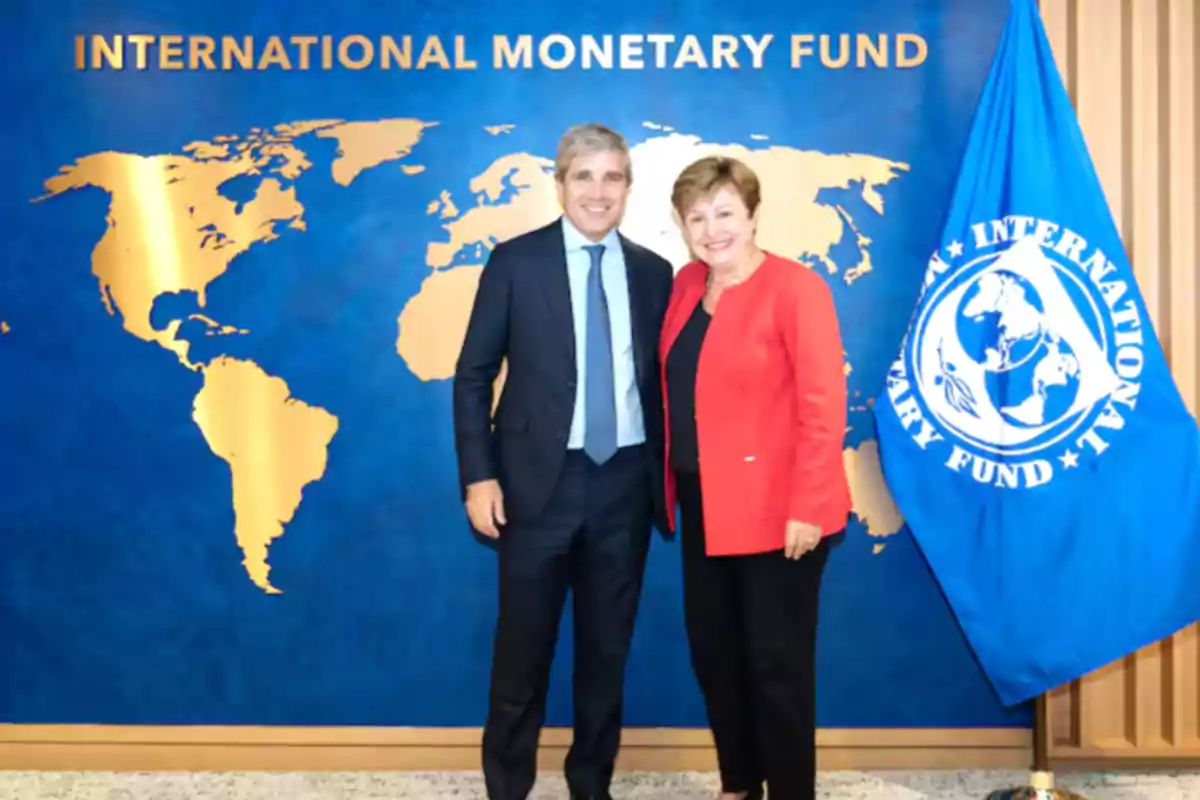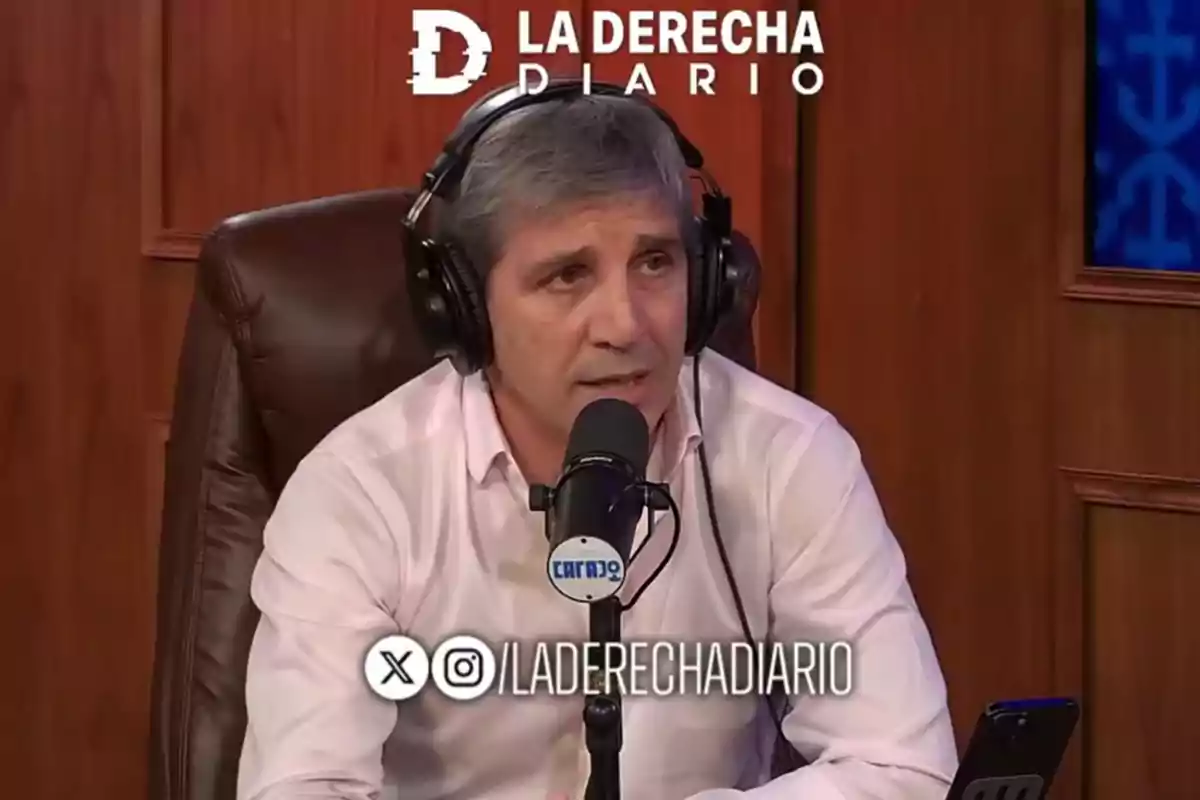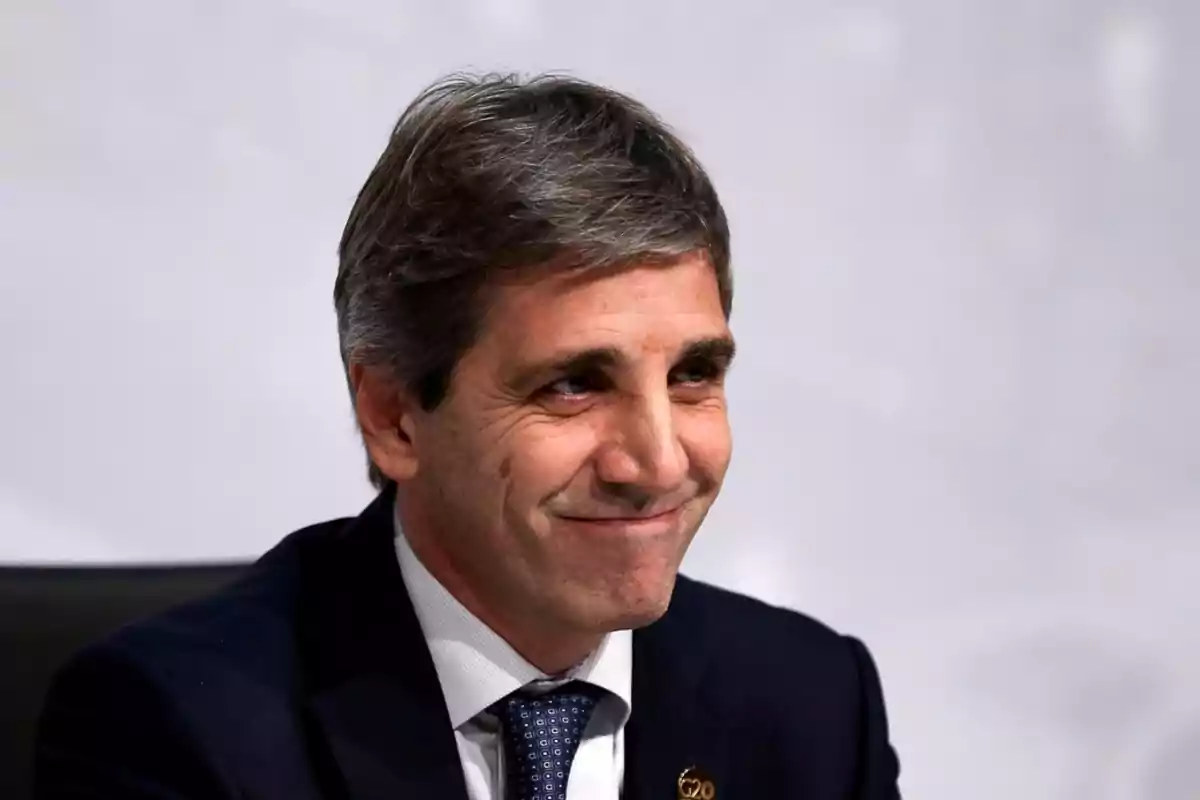
Toto Caputo after the rise of the dollar: 'Many, faced with the risk, decide to protect themselves'
'It's nothing we haven't seen': Caputo claims to have inflation under control and targets Kirchnerism
In a scenario where certain sectors seek to instill uncertainty for political purposes, Javier Milei's government has once again demonstrated that it has the economic helm under control. The Minister of Economy, Luis "Toto" Caputo, not only downplayed the recent rise of the dollar, which accumulated 13.6% in July, but also attributed the volatility to the "kuka risk," that is, the fear of a possible return of Kirchnerism in the midterm elections.
"This is nothing we haven't experienced during this government. The issue is being exaggerated from certain sides. Many, faced with the kuka risk, decide to hedge; this is nothing we haven't seen," Caputo stated firmly in remarks to Las Tres Anclas, the program broadcast on the libertarian streaming channel "Carajo."
The head of the Treasury spoke after the approval by the IMF Board of Directors of the first review of the agreement with Argentina, which enables an immediate disbursement of USD 2 billion and, more importantly, modifies the reserve accumulation schedule in line with the government's objectives.

"It will be very well received by the market. It changes the reserve accumulation schedule to a compatible one," Caputo anticipated, noting that this will provide greater exchange rate stability and facilitate access to international financing.
The most relevant fact, the minister emphasized, is that in the last 35 days, USD 1.5 billion have been purchased in the market, at a rate of USD 75 million per day, a clear sign of the strength of the exchange rate policy and the supply flow that supports the dollar.
"Our problem has never been the purchase of reserves. We've bought twice as much—almost USD 26 billion—in the first 18 months compared to other governments," Caputo stressed, explaining that the accumulation problem was due to inherited debt payments and the closure of market access left by the previous administration.
He was also emphatic in pointing out the cost of populism: "The plan cost us almost USD 13 billion, which later made the timing of reserve accumulation more difficult because we started from a different starting point," he said, in a clear allusion to former minister Martín Guzmán, responsible for economic policy during the last stage of Kirchnerism.
Regarding concerns about prices, Caputo was emphatic that there is no reason to expect a new inflationary surge: "If they start raising prices due to the exchange rate increase, they're going to sell less, as has already happened. What concerns us is inflation, and we're always going to be focused on ensuring there isn't a surplus peso and that supply and demand are as balanced as possible."

He also highlighted the Central Bank's capacity to contain potential monetary imbalances: "If a distortion were to occur, which could be caused by money demand, the BCRA has the tools to absorb the necessary pesos. Even if the exchange rate were to rise, it wouldn't be reflected in prices, as has been happening recently," Caputo explained, accompanied by the BCRA president, Santiago Bausili.
Meanwhile, the International Monetary Fund issued a statement in which it praises the performance of the Argentine government and values the implementation of responsible fiscal and monetary policies, even recognizing the complex external context. The organization emphasized that the "solid policy implementation has supported a smooth transition to a more flexible exchange rate regime, with declining inflation and sustained economic growth."
"The Executive Board welcomed the authorities' commitments to safeguard the fiscal anchor, improve the monetary framework, rebuild reserves, and promote reforms that foster growth," the IMF report details.
With this new disbursement, Argentina has already received SDR 10.729 billion (USD 14 billion) since the beginning of the agreement, out of a total of SDR 15.267 billion (USD 20 billion), which represents 479% of the country's quota with the Fund.
More posts: